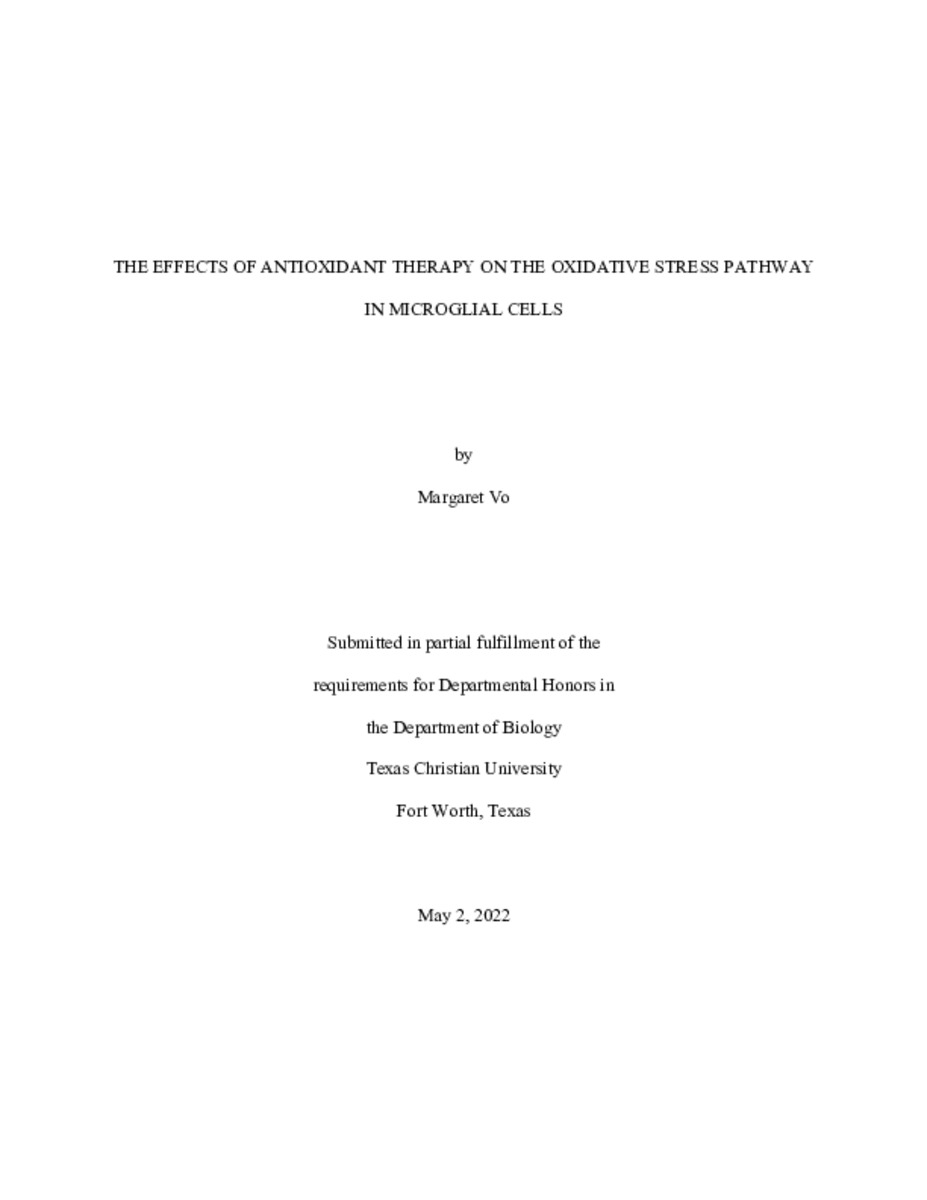The Effects of Antioxidant Therapy on the Oxidative Stress Pathway in Microglial CellsShow full item record
| Title | The Effects of Antioxidant Therapy on the Oxidative Stress Pathway in Microglial Cells |
|---|---|
| Author | Vo, Margaret |
| Date | 2022 |
| Abstract | Alzheimer's Disease (AD) is a progressive neurodegenerative disease associated with old age and marked by deficits in memory and cognitive function. AD pathology is characterized by amyloid-beta accumulation, which leads to amyloid-beta plaque formation and ultimately neuronal death. Additionally, amyloid-beta activates microglial cells, which function as immune cells in the brain. Microglial cells secrete proteins that induce inflammation, known as pro-inflammatory cytokines. The chronic activation of microglia engenders oxidative stress in the brain, which further exacerbates AD pathologies. Dr. Kayla Green's lab in the TCU Chemistry Department has successfully created potent small molecules, such as L2 and L4, that act as potent antioxidants. We collaborated with Dr. Green's lab to research the possible, therapeutic effects of L2 and L4 treatment against inflammation in immortalized, BV2 microglial cells. Moreover, the main purpose of the current experiment was to further study the effects of these molecules against key AD pathologies, and to understand L2 and L4's therapeutic potential against inflammation in vitro. The overall goal of this research was to demonstrate the capacity of L2 and L4 to minimize the immunological mechanisms that drive AD pathologies. AD is the sixth leading cause of death in America, but the availability of therapies is limited. Our research will contribute to the understanding of the link between the immune system and central nervous system in AD development. |
| Link | https://repository.tcu.edu/handle/116099117/54259 |
| Department | Biology |
| Advisor | Chumley, Michael |
| Additional Date(s) | 5/19/2022 |
Files in this item
This item appears in the following Collection(s)
- Undergraduate Honors Papers [1463]
© TCU Library 2015 | Contact Special Collections |
HTML Sitemap



